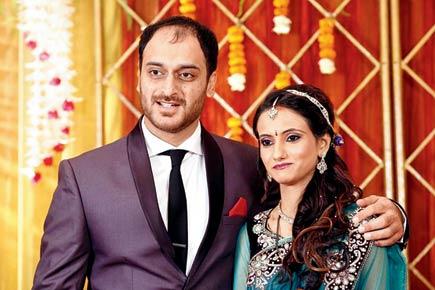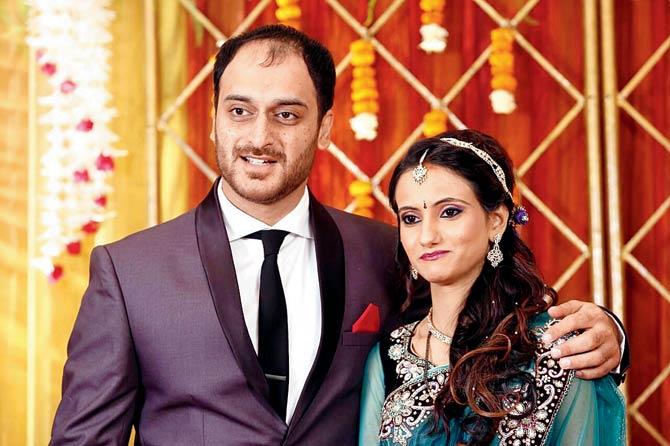When 33-year-old Indian Bhavin Rajendra Chandrapota married Komal Vithal Bhatia, a Pakistan-born woman, cross border exchanges were looked at favourably, but things aren’t smooth sailing anymore


Dubai-based Bhavin Chandrapota married Komal Bhatia, a Pakistani national, in Mumbai in August 2014
ADVERTISEMENT
The ongoing tension at the India-Pakistan border seems to have made its way into the household of a Dubai-based couple. When 33-year-old Indian Bhavin Rajendra Chandrapota married Komal Vithal Bhatia, a Pakistan-born woman, cross border exchanges were looked at favourably, but things aren’t smooth sailing anymore. So much so that though they met in Dubai and reside there, Chandrapota is unable to secure the sponsorship for his wife to come to India for a wedding in February.
Diplomatic barrier
Chandrapota married Bhatia, a fellow Sindhi and a Pakistani national, on August 10, 2014 in Mumbai. At the time, Bhatia had applied for the visa with the Indian embassy in Dubai with a sponsorship certificate and entered the country.
However, this year, in their bid to secure a visa to attend the wedding, Chandrapota — a resident of Bur Dubai, with his Indian home in Kandivli — has a sponsorship letter for Bhatia from his paternal uncle, but has been unable to get it attested by a gazetted officer falling into Class I or Group A category; mostly because of the damaged relations between the two nations.
“I came to Mumbai on November 21 and have been trying to get an attestation from a gazetted officer, but nobody is ready to sign the form. The person who signed it the last time — an Income Tax officer — has also refused to sign it now,” said Chandrapota.
No end in sight
“I have made several rounds to Mantralaya and other government offices, but nobody is willing to sign. I was supposed to return on November 26, but extended the leave to December 2. If I return empty-handed, my wife won’t be able to attend the wedding or meet our relatives,” mourned Chandrapota.
Knocking on HC door
On Wednesday, Chandrapota also made a last ditch attempt by approaching the Bombay High court, but Chief Justice Manjula Chellur and Justice Mahesh Sonak said that there were some discretionary powers that the Ministry of External Affairs and Bureau of Immigration enjoyed, and so they were free to decide who to give visa to or not.
Chandrapota’s counsel Rushil Mehta said, “We have no option left. We have been trying everything to ensure that a gazetted officer signs the certificate. We also thought the Bombay High Court could help us, but now we are left with no remedy. If we could have submitted the certificate now, the Indian Embassy in Dubai could have taken 45 days to clear the visa after following all due procedures,” explained Mehta.
What’s the hitch?
“Like other countries, there is no tourist visa application centre between India and Pakistan and one can only travel to the other country if there is a host. Also, people need a signature or attestation from one of the following: A divisional magistrate superintendent of police, sub-divisional magistrate, tehsildar, station house officer, Group A official of Central government, principal of government college, or principal or head master of a government school. Nowadays, it is difficult to get an attestation for a Pakistani as nobody is ready to take the risk,” said Mehta.
 Subscribe today by clicking the link and stay updated with the latest news!" Click here!
Subscribe today by clicking the link and stay updated with the latest news!" Click here!






